Although it isn’t classified as an illness, psychosis is a serious mental condition that requires attention.
When talking about psychosis triggered by the use of cannabis, it’s important to note that this acute state can manifest with severe symptoms, but will usually resolve once the drug is out of the system.
However, the scientific research done in the field presents a pretty strong consensus. There is no room for controversy: a psychotic episode should be an immediate warning sign to stop marijuana abuse.
People with a psychological susceptibility to mental disorders should avoid any substance abuse, including cannabis.
In some cases, this type of proneness is also connected with a higher risk of developing complex illnesses such as schizophrenia or bipolar disorder, especially if there is a genetic predisposition.
In this article, we’ll try to sum up the latest studies that exploit this subject and bring you the essential facts you should know about cannabis induced psychosis.
Symptoms
When experiencing a psychotic episode while high, an individual is always separated from reality in some form. Different manifestations include:
Delusions
A delusional person has false beliefs, despite strong evidence that speak otherwise. Common delusions in marijuana induced psychosis are paranoia, extreme suspicion, and a sense of grandiosity (believing that you can do more than you are capable of).
Hallucinations
One perceives things that contradict reality via different senses (visual and auditory are the most usual).
Dissociation from the real world
Dissociation is a sense of being detached from reality. It can manifest as depersonalization (having a feeling that you are outside of your body) and derealization (believing that objects around you are not real).
Inability to organize thoughts
Another manifestation is having disturbing thoughts and little control over them, followed by a difficulty to focus and speak in a rational order.
Emotional extremes and behavioral changes
If the above are present in a psychosis episode, a person typically has exaggerated effects, characterized by anger and agitation, or, on the other end of the spectrum, by a lack of any effect whatsoever (catatonic behavior).
Although it doesn’t necessarily mean that a psychotic is dangerous, many of these symptoms can lead to risky behavior.
For example, paranoia can trigger the need to defend oneself, which could end up in an over-aggressive attitude. A delusion of grandiosity can immerse a person in actions that are potentially self-harming.
Naturally, in these cases, it is crucial to seek help and prevent further accidents.
Pre-symptoms
Typically, marijuana-induced symptoms emerge without much warning. But there can be some indications, which are defined as a pre-psychosis or early psychosis. Some of the signs are:
- Depression
- Anxiety
- Paranoia
- Withdrawal
- Inappropriately strong emotional reactions
- Emotional indifference
- Inability to formulate logical speech
Is cannabis induced psychosis permanent?
As we said, the psychotic state introduced by weed is usually acute and has a limited duration (during consumption, withdrawal, or a month after it). Once the THC has left one’s system, the symptoms should disappear.
Nevertheless, this type of individual reaction could implicate vulnerability to mental disorders, thus having a chance to reoccur. People reported repeated psychotic episodes each time they smoked weed.
In some cases, usually with an underlying mental disease, the episodes can develop into a chronic state that requires complex medical treatment.
What causes cannabis induced psychosis?
Delta-9-tetrahydrocannabinol (THC) is well-known for its psychotomimetic effect. This component of cannabis can produce symptoms similar to those found in “real” psychosis, which are characteristic of schizophrenic fits, for example.
THC interferes with the normal functioning of the brain by disrupting the flow of signals among its cells, normally regulated by endocannabinoids, explained Beat Lutz, a neurochemist at the University of Mainz. Upsetting this vital flow of information produces depression, anxiety disorders, epileptic fits, and psychosis.
Curiously enough, the other component of cannabis – Cannabidiol (CBD) appears to have the opposite effect. Scientists are researching its possible usage as an antipsychotic drug.
Professor Philip McGuire, from King’s College London’s Institute of Psychiatry, Psychology, and Neuroscience, was the lead author of the study that aimed to explore alternatives to conventional antipsychotic drugs.
His trial showed a modest improvement in the condition of patients that were simultaneously using their antipsychotic therapy and CBD, thus pointing to the possibility that this component could offer additional benefit in such treatment.
Risks
According to research done in the past decade, a higher risk for developing substance induced psychosis depends on three factors:
Susceptibility to mental disorders
This is another critical consensus among scientists: people who are mentally “vulnerable” in some way are more likely to develop a psychotic episode while using pot. For example, if a person has a family history of schizophrenia, and is using cannabis, he or she will most probably undergo such condition sooner or later.
In such cases, David J. Castle from the Department of Psychiatry at St Vincent’s Hospital Melbourne, comments in his study Cannabis And Psychosis: What Causes What?, that THC acts as a cumulative causal factor. In other words, it could be one of the reasons the illness manifests itself.
To people who are predisposed to mental illnesses, even a small dosage could provoke psychotic state. It is as if someone with diabetes would eat sugar and become hyperglycaemic. (Castle, 2013)
THC potency and dosage
It is often claimed that weed is stronger these days, in comparison to its potency back in the seventies. The United States is the only country that has analyzed the THC content of cannabis products over the past three decades.
The data in those analyses “show an increase in THC content from 1.5% in the early 1970s, to 3.3% in the mid-1980s, and 4.4% in 1998.”
Marijuana is not what it used to be.
This begs the question if the current THC potency is somehow related to the statistical rise in the number of reported psychotic episodes during consumption.
Although the science doesn’t come to a final word on the matter, it seems that there is a close correlation between THC potency and dosage, and the development of psychotic behavior.
In an interview given at the World Psychiatric Association’s World Congress in Berlin, results of a recent research study were presented, showing that high-potency cannabis (approximately 16 percent THC) was involved in 24 percent of all cases of the first episode of psychosis.
The connections behind the issue and the conclusions seem pretty obvious.
Genetics
Besides the increased risk recognized in individuals prone to mental disorders, variants of a particular gene might also be responsible for cannabis induced psychosis.
A study conducted in 2016 showed that people who experienced the onset of psychotic symptoms for the first time also had specific variants of an AKT1 gene. The scientists were observing a group of 442 young cannabis users getting high and collected their DNA samples to perform an in-depth forensic analysis on them.
They learned that people with the AKT1 variant might release excess dopamine when they smoke cannabis, thus increasing the risk of psychotic symptoms.
Treatment
Even though one might feel reluctant to do so, it is essential for a person with psychotic symptoms to seek medical help. The experts recommend detoxification, providing a safe and quiet environment for recovery, and possibly, antipsychotic medications.
Considering that marijuana induced psychosis can sometimes indicate more severe disorders, medical advice and ongoing care could be vital. Psychiatric screening in such cases might discover illnesses timely, leading to proper preventive responses.
Final word
It’s tempting to think of cannabis induced psychosis as a one-time occurrence that will never happen again.
It’s probably frightening to seek help.
In most cases, it’s undoubtedly hard to quit.
But science, together with the experience of others, spells it out loudly and clearly: call it quits and ask for advice. It can happen again.
References
- Castle, D. J. (2013, January 11). Cannabis and psychosis: what causes what? F1000 Faculty Reviews.
- Degenhardt L, H. W. (2016, August 9). Is Cannabis Use a Contributory Cause of Psychosis? Can J Psychiatry.
- Fields, R. D. (2017, October 20). Link between Adolescent Pot Smoking and Psychosis Strengthens. Scientific American.
- Morgan, C. J. (2016, February 16). AKT1 genotype moderates the acute psychotomimetic effects of naturalistically smoked cannabis in young cannabis smokers. Translational Psychiatry volume 6.Philip McGuire. (2017, December 15). Cannabidiol (CBD) as an Adjunctive Therapy in Schizophrenia: A Multicenter Randomized Controlled Trial. American Journal of Psychiatry.
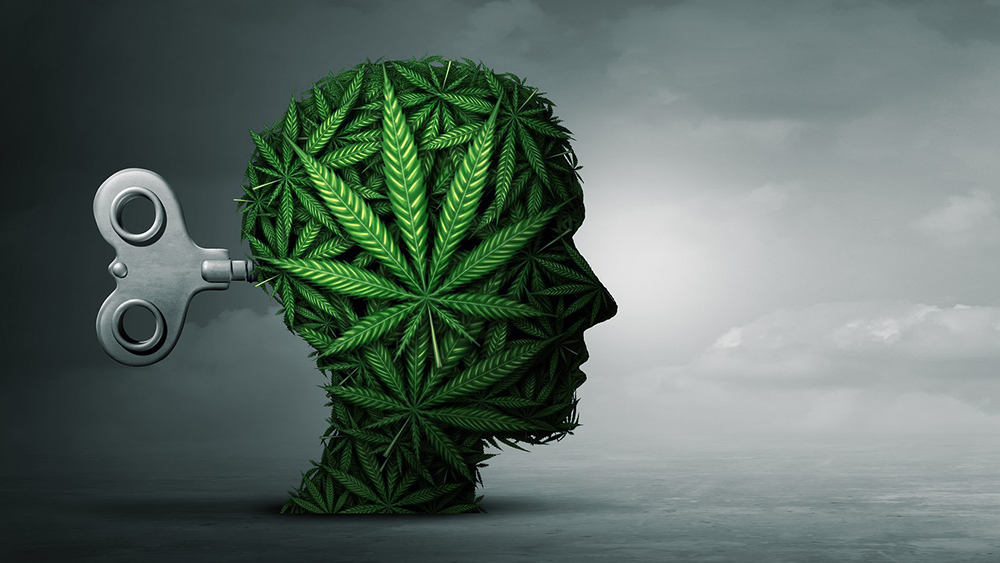
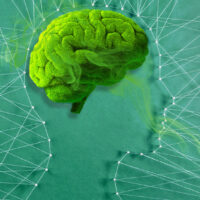
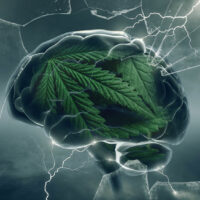
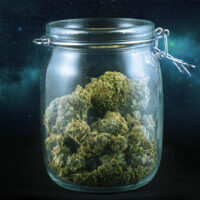
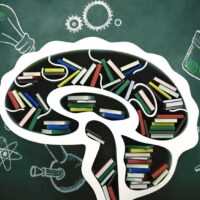


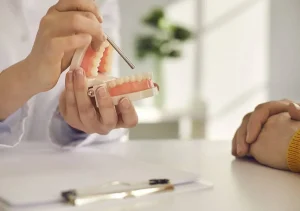

Murray Schneider February 26, 2020 at 5:20 pm
My son has experienced 3 episodes of cannabis-induced psychosis in the past 6 years. He has never used any other drugs, except a few doctor prescribed medical drugs. Everything that Helena has written in this article apply to him. The last time it happened in 2016 the damage caused was extensive and he was hospitalized for a time. His doctor determined that cannabis was what exacerbated his underlying mental condition and put him into a state of psychosis. He promised he would never consume or smoke it again. He was helped to live on his own and was getting on with life fairly well until he started smoking cannabis again early Feb-2020. Within 1 week he was in full blown psychosis and a lot of damage was done to his apartment. Currently he is in psychiatric hospital and will likely be there for a couple of months. I hope that anyone who experiences adverse effects from the use of cannabis would never risk it again. It is not worth it.
Ana Stanojevic February 28, 2020 at 8:31 am
Murray, thank you for sharing this difficult personal story, I hope it will help others in a similar situation. And I hope your son recovers very soon - for good.
Mary B November 18, 2020 at 2:37 pm
Our grandson is in a psychiatric facility right now. Anger, hallucinations. He ran away from home and says he only smoked weed, no drugs. It was like a light switch, immediate big changes in personality, holes in the walls. He’s been in for 2 weeks. Hoping in a few more weeks we will see an improvement. Hoping the best for your son also.
joe July 19, 2020 at 11:35 am
hi i completely disagree that canabis use needs to stop to cure psychosis. i found canabis use extremely helpful during my psychotic/ schizophrenic episode(it was the only thing that stopped me killing myself at its worst point) i didnt stop canabis and it went by itself. i still smoke every day and have had no symptoms for years. i believe and have read that the cause of this illness is often several factors compounding. i sorted the underlying problems (sleep,food,exercise,meditation) i feel that canabis gets scapegoated as its a 'drug' but i have read alot of research to show canabis helps psychosis and i believe people suffering are drawn to its thereputic effects rather than it causing the illness. i know several doctors and healthcare workers who agree and also think that psychosis sufferers should stay well away from the medical proffesionals as conventional treatments keep people drugged up on pharmaceuticals and often are unwell and relapse for years. (one friend recently killed himself after years of hell caused by prescription medecine) the consensus seems to be that community and support are tge best medecines.
Daniel Whitelocke, MD August 25, 2020 at 12:24 am
I agree that this is a hotly debated topic. Quite a significant number of patients that I am treating with medical marijuana have a history of risk factors for psychosis. The central question in managing these patients is deciding on a drug regimen that gives the best possible benefit with the least possible harm. When weighing other options, marijuana still has a much safer profile than antipsychotics, and can be managed safely with a compliant patient that is agreeable to the program. Great point on dosing with CBD as this is crucial to keeping a relative psychoactive ceiling.
Donna Bond September 16, 2020 at 2:58 am
I am 63 years old and take cannabis oil with both CBD and THC for occasional fibromyalgia symptoms, in different strengths and ratios depending on my need. The oil tinctures make dosing easy to regulate, and I am normally able to function very well when I am taking it. However, today I was experiencing a bit more pain than usual, and (for some reason I can't possibly explain in retrospect), I thought it might be "interesting" to try a very small (.5 inch by .25 inch) gummy. Holy moly. I had my first full-blown psychotic episode. I was paranoid, and having very disturbing circular thoughts. , For example, I looked at a butter knife and felt sure it was going to do something to hurt me! I was aware enough to know that this wasn't rational, but I couldn't stop the thoughts from coming. I walked over to my neighbor's house, explained the situation, and he kept me talking, anchored to reality. I was finally relaxed enough to walk home and lie down for some sleep. All these hours later, I am still a tiny bit "high" but am feeling better -- stable and safe. I really believe this is a one-time thing because I have no idea how much THC was in that gummy. It was the smallest of five samples my caregiver gave me, but I've never felt that affected before. I suspect that gummy contained very little CBD and a LOT of THC. I will NOT be doing that again! It was terrifying.
Gwendolyn February 25, 2021 at 9:23 am
I recently experienced a weed induced psychosis. I understand that I should never touch THC again. Does this abstinence apply to all drugs? Could mdma or shrooms trigger the same psychosis?
Vayu May 25, 2021 at 6:57 am
I've used cannabis on and off for many years. Most aspects of life and emotions are better off than on, but there are no rules. I've had times when quitting caused psychosis, I felt I knew insanity. I've had times where any use would cause at least extreme anxiety. I've had times where only some random use would cause it. I've had times where using would relieve it. For me the only rule is there are no rules. Quitting has usually been so difficult especially with the insomnia that often I was better off using. Overall I rather be clear and free from cannabis but I believe that believing it's good, and believing that it's bad are both simplistic and inaccurate.
Malte September 10, 2022 at 9:25 pm
I quit drinking and turned to weed. I was smoking over an OZ a week and I felt great! I was more successful than I had ever been doing my contract software engineering work, I fixed my body doing CrossFit, and became a professional musician. Unfortunately it also made me delusional and paranoid, and later lead to an intense psychosis. It's taken me months to recover, but I don't regret my choice. It broke and healed me at the same time. I have substance abuse issues, I know how to deal with it now, and I don't need to escape anymore.